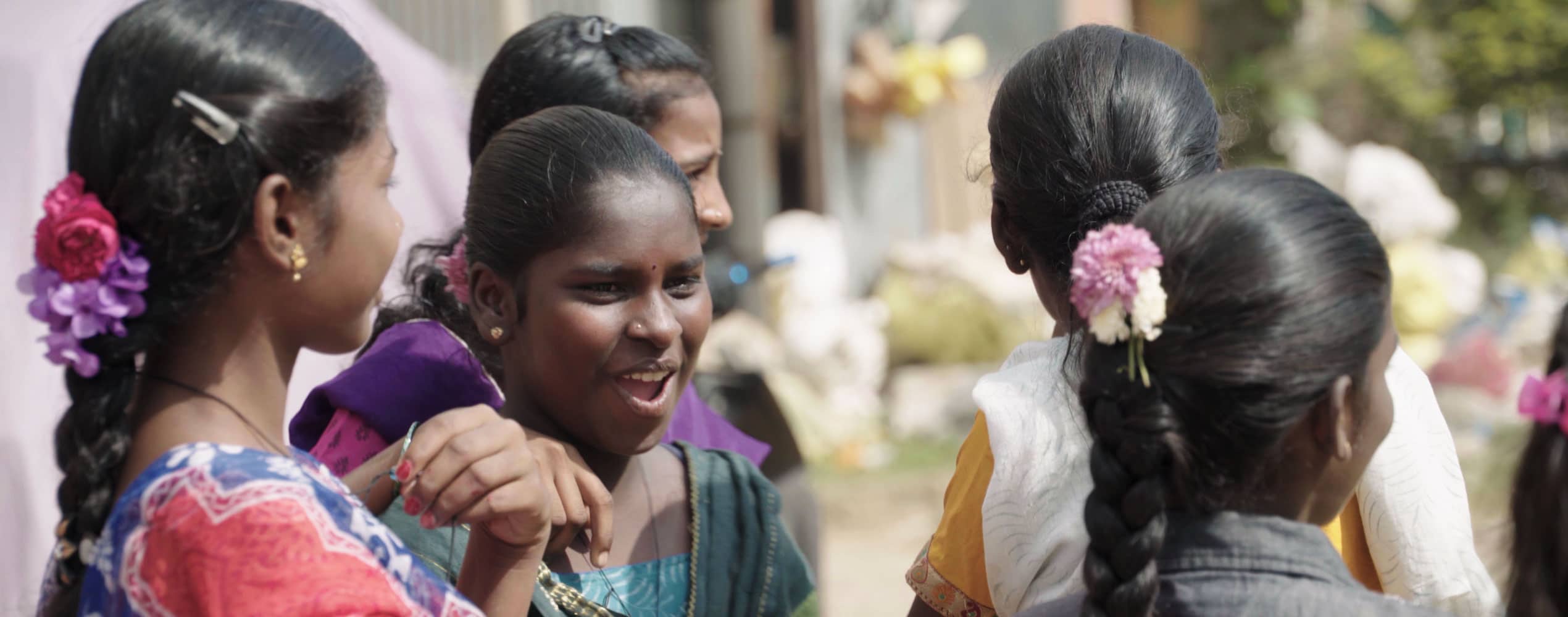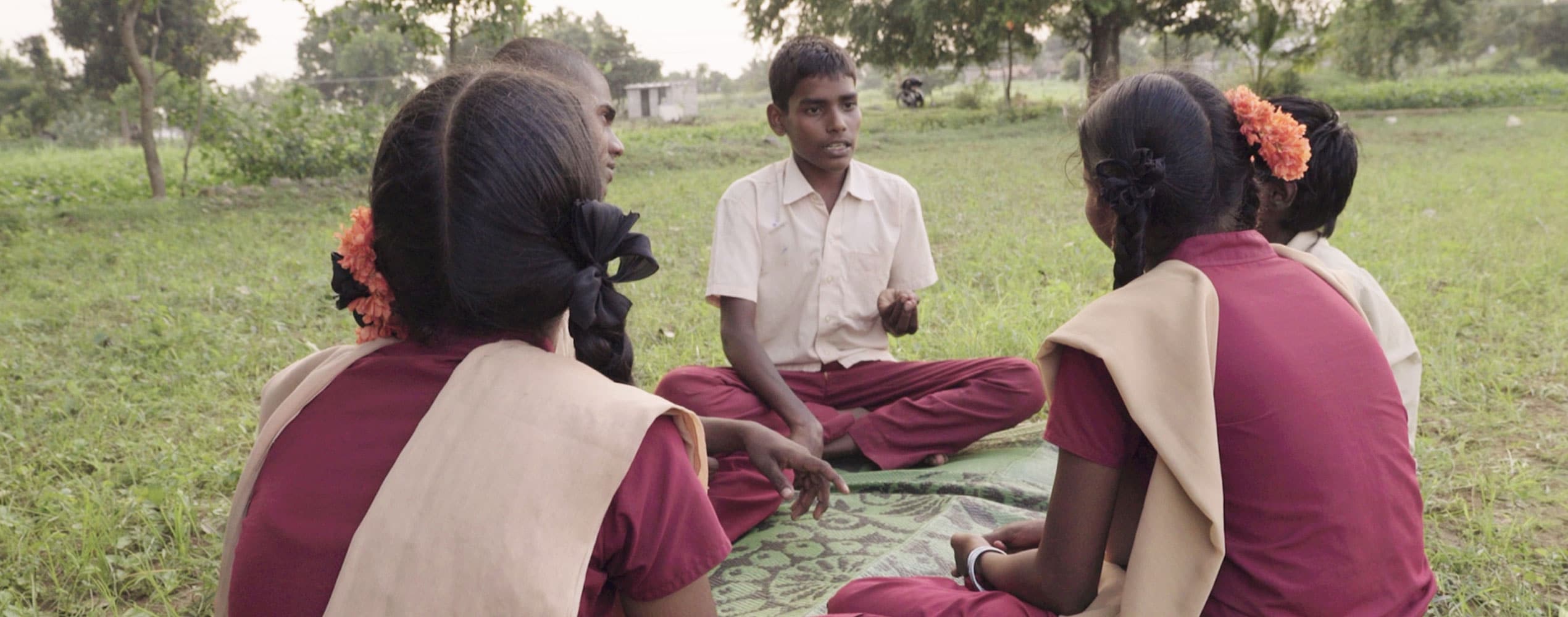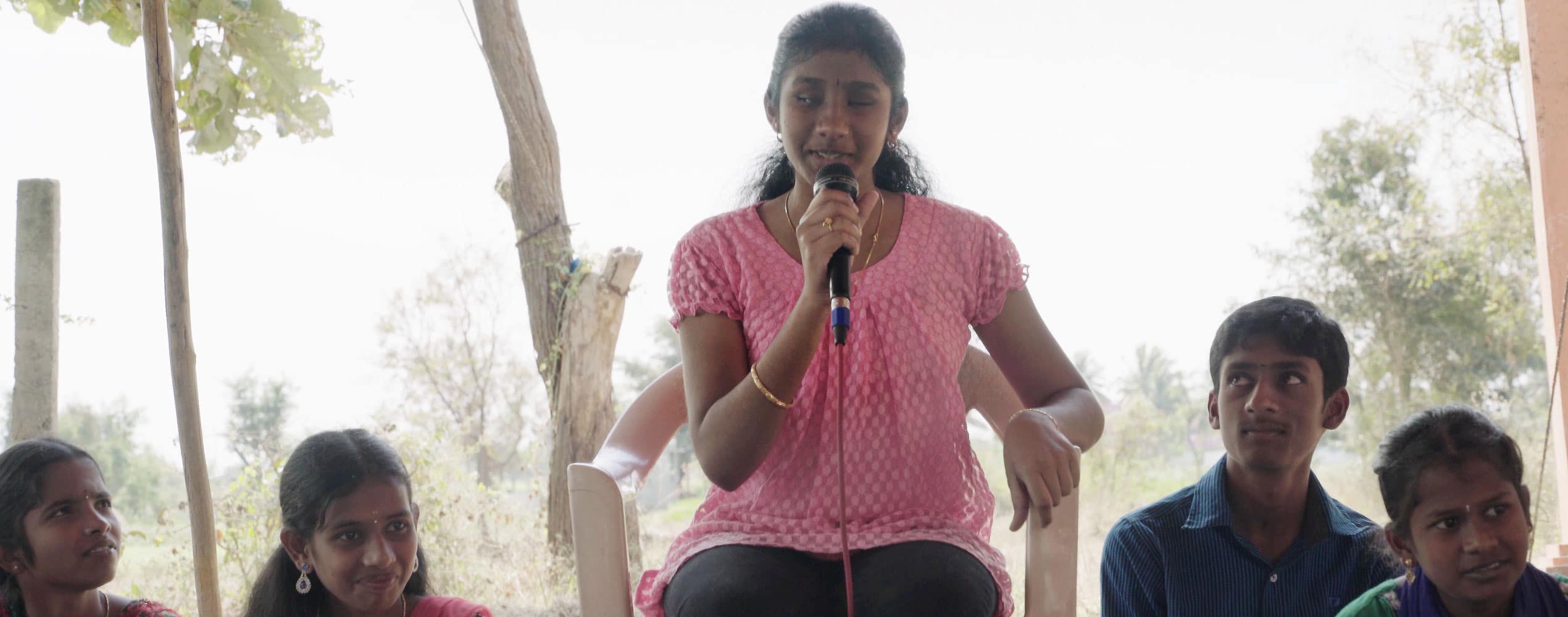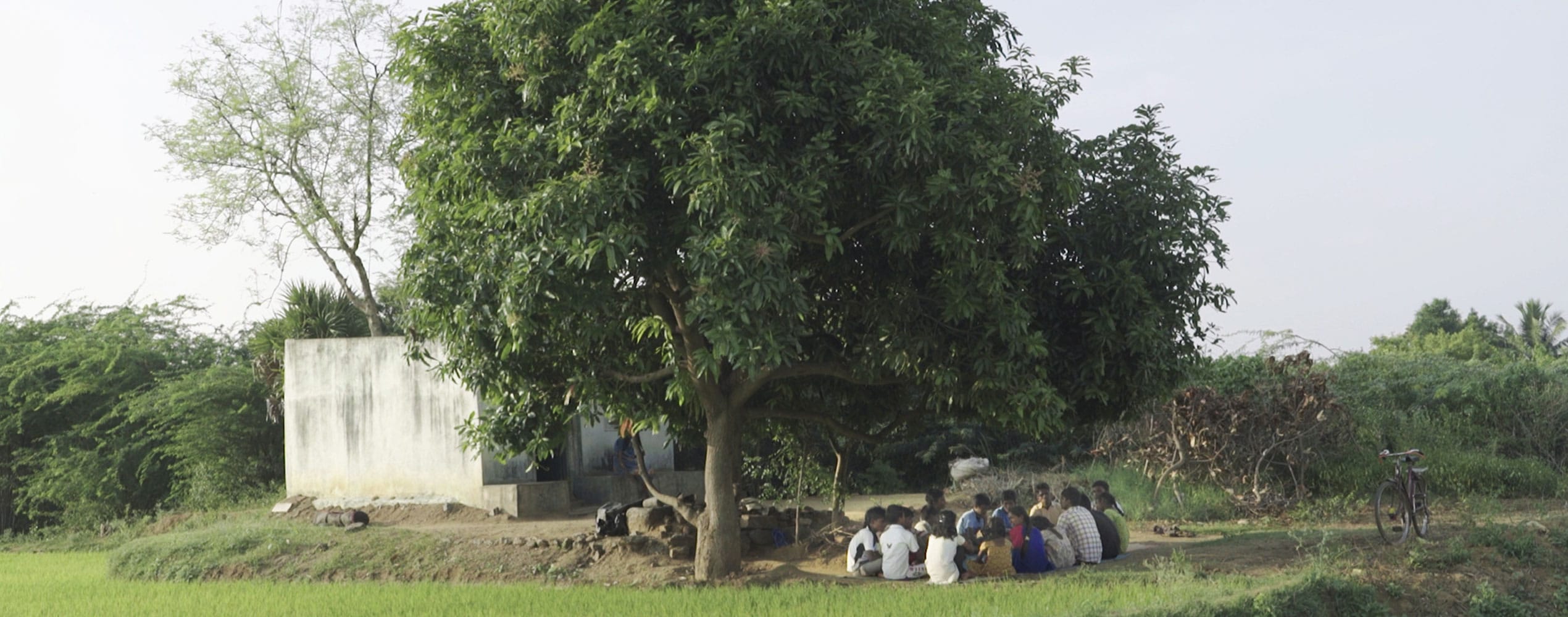FILM
POWER TO THE CHILDREN
Children in India have taken their lives into their own hands. They don’t want to tolerate social grievances as well as environmental pollution any longer.
They have been founding children parliaments and electing their own ministers in order to stand up for their rights. They are not only changing their own lives for the better, but also those of their communities.
The film takes the perspective of the children to tell us about the challenges
they have to face in a society that expects them to follow the example of adults.
We will see how these children have opted to take a new path – with determination, courage and creativity.
وصفات لعلاج تساقط الشعر
PROTAGONISTS

Sri Priya (14) – Home Minister
She is taking care of the environmental problems of the village.
She has learned from a young age to stand on her own feet. Her parents live in a far away city, where they found work. She lives with her grandmother and elder brother.
Since she has pointed out the garbage and water problems of the village to the mayor again and again, she has earned great respect from the adults. Together with the children parliament she has stopped child marriage in her village.

Shaktivel (15) – Cultural Minister
He loves dance and theater. As cultural minister he develops unique and vibrant campaigns with his creativity.ماسك للوجه
Many children from the village suffer because of the aloholism of their fathers. They decide to ensure that the alcoholshops are going to be closed. Together with the children Shaktivel develops a play. They want to show the adults what it means for them to grow up in a family where the father drinks and becomes violent.
أسباب ضيق التنفس

Swarna Lakshmi (15) – Prime Minister
As a blind girl, she has learned from young age, what it means to be different.
Since she was ten years old she has been fighting for inclusion. After having various minister roles, she now has got the highest position as the prime minister of India within the children parliaments.
She is committed to ensure with ther whole heart that the child rights are respected,
not only in India, but everywhere in the world.ماسكات للوجه
CREDITS
We heartily thank the protagonists
SHAKTIVEL (15) – Cultural Minister
SRI PRIYA (14) – Home Minister
SWARNA LAKSHMI (15) – National Prime Minister
as well as the children of the Children Parliaments and their families
Script / Director / Production
ANNA KERSTING
Cinematography
RATHEESH RAVINDRAN
Location sound
AMRITH SHANKAR
Montage
KATHARINA FIEDLER
Animation
DENIZ ZAGLI
Music
MANICKAM YOGESWARAN
Unit manager & Translation
ARTHI VENDAN
Sounddesign
JOHANNES KUNZ
DENIS ELMACI
Re- recording mix
JOHANNES KUNZ
Colourgrading & Online editing
FELIX TROLLDENIER
Line producer
JÖRG LANGER
Funded by


and by funds of the Protestant Development Service
CHILDREN PARLIAMENTS

How do Children Parliaments evolve?
There are two types of Children Parliaments. One is founded by the children; the other is founded by the schools.
This film is only about Children Parliaments which are founded by children. They are called Neighbourhood Parliaments in India.
The idea goes back to the NCN (Neighbourhood Community Network), a South Indian aid organisation that developed the concept of independent children’s parliaments about 15 years ago. The concept has been adopted by many local human rights and environmental organisations in India.
In recent years, more than 100,000 such Children Parliaments have been created there.
Delegates from many countries are now travelling to India to get advice on how to organise children’s parliaments in their countries. The founders of the Indian children parliaments also conduct trainings in Europe. (Please see CONTACT)
Local human rights and environmental organizations in India go to the villages to first inform the children about their rights. Most children do not know that there are children’s rights, such as the right to education.ماسك
Usually social workers are involved. Sometimes someone from the village is chosen who is willing to support the children. Not all adults agree that children have their own rights. It is important that the children trust this person. The person of trust teaches the children about democracy and explains how a parliament works, and accompanies them over a longer period of time.
As soon as the children can solve their problems on their own, the person of trust withdraws, but is still available to them as a contact person.
What effect do children parliaments have?
Child marriage
A large proportion of young girls are still being married off in the rural areas of India.
Even in the villages that we see in the film, girls were being married off every year, sometimes as young as 12 years old. The children of both parliaments are proud that they have managed to abolish child marriage completely in their villages. If they find out that a young girl is going to get married, they immediately contact the parents of the girl and explain to them that child marriage is forbidden by law and that girls have a right to education. If the parents do not agree, the children contact CHILD LINE, a governmental organisation that advocates for child rights.
Child labour
The children from both villages in the film have also managed to stop child labour and make sure that all children go to school. If a child does not turn up at school, they ask for an explanation from the parents of the child. In the case of parents forcing their child to work, the children inform them of child rights. If the parents insist that their child works, the Children Parliaments contact CHILD LINE.
Domestic violence and alcoholism
Obedience to parents is given the highest importance in India. If one parent is violent or dependent on alcohol, the children become conflicted. They know they have to follow their parents, but if the father beats them and their mother because of his addiction to alcohol, there will be no protection anymore. They know their rights, but there is no one to protect them. Therefore, they try to help themselves by starting campaigns against alcoholism and violence.
Environmental issues
There is usually no garbage disposal in the rural areas of India.
Villages and whole regions are contaminated with plastic garbage.
In addition, people from the villages burn their plastic waste.
The children from the Children Parliaments understand the connection between global warming and the burning of garbage. They are starting campaigns in their villages to inform the adults who are very often illiterate.
Water – and Electricity supply
The children from the Children Parliaments have learned how democracy works. They know that the mayor of the village is supposed to ensure sufficient drinking water and overcome problems with the sewage.
They also make sure that defective street lights get repaired.
They write petitions and threaten to contact higher authorities in case the mayor forgets his duties.
Countless Children Parliaments have solved water and electricity problems this way.
ABOUT
Anna Kersting
author, director and producer; lives in Berlin.
How did the idea for this film come about?
In 2011, while doing research on child labour in India, I heard about Children Parliaments for the first time. Shortly afterwards, I visited a children’s congress in South India.
Over two hundred and fifty children, between 12 and 17 years old, had gathered at a school campus. They were delegates of Children Parliaments from different parts of India. These children spent three days in the shade of big trees, discussing child labour, education, child marriage and domestic violence, looking for solutions till late into the night.
The power and passion of these children touched me so deeply that I decided to make a film about them. I saw the chance of putting an end to child labour and child marriage if children themselves could stand up for their rights.
CINEMA
Upcoming International Filmfestivals
Due to Covid 19 there are no film festivals at the moment.
CONTACT & DISTRIBUTION
If you are interested to watch the film, or acquire a license, please contact:
Anna Kersting Filmproduktion
Backpack Distribution – Anna Kersting Filmverleih
Bruno Taut Ring 5 b
12359 Berlin
Telefon + 49 30 – 239 307 46
Mobil + 49 176 – 520 180 39
E-Mail childrenparliament.info@gmail.com
If you are interested to contact the founders of the Indian children’s parliaments, please contact:
Joseph Rathinam
Email: rathnamjoseph@gmail.com
Phone: +91 94441 41032
LINKS
Children- and Neighbourhood Parliaments
India
Neighbourhood Community Network
Sociocracy
Austria
https://soziokratiezentrum.org/
Germany
https://soziokratiezentrum.de/
Italy
https://www.facebook.com/sociocraziapertutti/
Netherlands
https://www.sociocracy.info/gerard-endenburg/
International
Sociocracy For All
https://www.facebook.com/groups/SociocracyForAll/?ref=group_header
School Circles is a documentary that explores the practice of democratic schools in the Netherlands that practice sociocracy
This post is also available in: German Italian Spanish Portuguese (Portugal)





